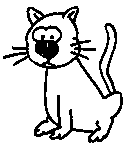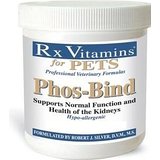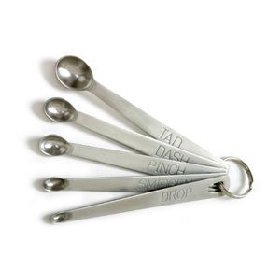|
Phosphorus binders are a critical treatment for extending a CRF cat's life. A 2001 study by Peter Markewell (BSc, BVetMed, MRCVS) for the Waltham Centre for Pet Nutrition found that "...using a phosphate- and protein-restricted diet, in combination with oral phosphorus-binding agents in those cats in which control of hyperphosphatemia [high phosphorus] and RHPTH [renal secondary hyperparathyroidism] was not achieved by diet alone, resulted in more than doubling of average survival time from the commencement of treatment." Both aluminum and calcium-based binders are available without prescription, but the aluminum based binders are more effective, safer, and often cheaper. Renagel is an expensive prescription binder used only if cats cannot tolerate the aluminum and calcium binders. Veterinarians report that "compliance rates" with phosphorus binders are low because owners have problems giving them and cats resist taking them. Choose a binder that you're able to give and that is palatable to your cat. Dried gel powders are mixed with an animal's wet and dry food. Liquid suspensions are usually syringed onto a cat's tongue. Both powders and liquids can also be given in gel caps but large dosages sometimes preclude this. Binders must given with each meal so that they can bind with the phosphorus in newly consumed food and prevent its absorption into the body and bloodstream. This page lists popular binders and places to buy them. |
David's
advice: "Generic Aluminum Hydroxide Dried
Gel USP powder" is the most effective,
easiest to use and least expensive binder in
almost every case. Many vets are unaware
that this over-the-counter (OTC) product is
readily available from compounding pharmacies and
via mail order, so you may have to educate them."
Information and Vendors |
|
Generic Aluminum Hydroxide Dried Gel Powder (Al(OH)3). Generic Aluminum Hydroxide Dry Gel Powder (USP) may be purchased from local compounding or hospital pharmacies or via mail order. This is the most convenient binder product because it is tasteless and easy to mix with wet food and even dry food (mix binder and dry food in a plastic baggie and dry food will absorb the binder overnight or slightly warm the dry food in the microwave (5-8 seconds) and then shake the powder with the food in a baggie like shake and bake ... the outer fatty coating of dry food (called digest) softens with warming and will let the powder attach more readily.). The dry gel powder is non-prescriptive but some compounding pharmacies and other vendors may insist upon a veterinary prescription. (Vets may know about liquid-based binders such as Alternagel but many are unaware of the generic aluminum hydroxide gel powder.) For a cat that's going to be on binders for the rest of his or her life, this is most effective and least expensive option. Three brands of aluminum hydroxide dry gel powder are readily available (PCCA, Spectrum and Gallipot) -- others that meets USP standards are acceptable. The USP gel powder contains 300 mg of aluminum hydroxide per 1/4 teaspoon. A minimum of 76.5% of the weight of USP aluminum hydroxide dried gel powder is aluminum hydroxide; thus, a 500 gram tin of the product would contain 382.5 grams of aluminum hydroxide, enough to treat the typical 10 lb. cat for 1-2 years or more (see dosage protocol below). Products
You
should be able to buy one of the above or an equivalent USP generic at
a local compounding pharmacy for $40-$65. They may not have it in
stock, but they can order it. If you can't find it locally,
ThrivingPets is the only mail order vendor currently recommended by
folks who frequent this web site.
|
|
Other Aluminum Based Binders Basaljel
(Axcan
Pharma Inc.)., sold only in Canada, over the
counter, a dried aluminum hydroxide gel powder and
sucrose packaged in gel caps, comes in bottles of
100 gel caps. Each 641 mg cap has 500 mg of
aluminum hydroxide. Basaljel is flavorless and
mixes easily with wet food. Basaljel can be
purchased at Canadian drug stores.
Basaljel (Axcan Pharma) Aluminum Hydroxide, Gastrointestinal Phosphate Binder. Each yellow and red capsule contains: dried aluminum gel 500 mg (aluminum hydroxide-sucrose 641mg). nonmedical ingredients: magnesium stearate, microcrystalline cellulose and talc. Energy: 2.80 kj (0.67 kcal)/capsule. Tartrazine-free. Amphojel (Wyeth-Ayerst - NDC# 00008- 0010-01), an over-the-counter thick liquid suspension with 320 mg of aluminum hydroxide per teaspoonful (5 mL) (64mg/mL), available in peppermint and unflavored versions. Comes in 12 oz bottles. Most syringe amphojel down their cat's throats or give in gel caps. The tablet versions of Amphojel have been discontinued in the US and the liquid version is no longer distributed in the US; however, generic versions of Amphojel liquid are widely available - ask for an aluminum hydroxide suspension antacid. Flavored
Aluminum Hydroxide Suspension:
|
|
Calcium Based Phosphorus Binders Calcium-based binders such as Phos-Lo and Tums are readily available and inexpensive. But they're not as effective as the aluminum hydroxide binders, they require large doses and they are not as safe. There is the fear that supplementing calcium in a CRF cat can lead to serious problems such as hypercalcemia, soft tissue calcification, etc. These products are mentioned for completeness -- with the exception of Epatikin (see below), I haven't heard from anyone who's actually using a calcium-based binder. Epakitin/Ipakitine. Ipakitine has been marketed in Europe for awhile and its twin product, Epakitin, is now being heavily marketed in the US as a "nutritional supplement." This product's active binding ingredients are calcium carbonate and chitosan. Tests have shown the calcium carbonate binders are inferior to the aluminum-based products. Several well-known CRF researchers advised that this product should not be used in cats with high normal or elevated calcium due to the risk of throwing such cats into hypercalcemia by adding calcium carbonate to their daily meds. Dr. Larry Nagode of Ohio State University Veterinary College advises that the product should not be used with cats that currently get calcitriol nor cats that may get it in the future, again because of the risk of hypercalcemia. Epatikin is being marketed directly to vets and more as a renal protectorant/preventive than as a treatment for elevated phosphorus. I've received emails from folks in Germany and Switzerland about Ipakitine being prescribed for their early CRF cats - they report it seems to have helped their cats' appetite and energy. None of these cats had elevated phosphorus. Dosage recommendation is based on weight alone (1g/5kg body weight given orally in the morning and the evening mixed with food) without regard to phosphorus levels -- this further suggests that the product is intended for cats in early CRF and/or CRF cats with phosphorus in normal bounds rather than cats with elevated phosphorus where dosage is normally adjusted based on phosphorus values. This product is expensive -- the two retail sources currently on the web are charging $19.99 for 50 grams and $49.99 for 150 grams. One correspondent reported purchasing this from her US vet for $100 for 150 grams! Epakitin is an "over-the-counter" supplement. The manufacturer, however, is marketing it mainly to veterinarians and some vendors may insist on a "veterinary prescription." David's Advice: Epakitin may be worth a try for cats in early CRF that do not have elevated phosphorus. Once a cat's phosphorus is elevated (6 or more), however, aluminum-based binders are more effective in bringing the values down quickly. One CRF researcher advised that Epakitin can be used in combination with the aluminum-based binders. Please be aware that Epakitin is the only phosphorus binder currently being marketed directly to US vets for resale to their clients. Some clinics may push Epakitin because they profit from it and/or it's the only binder they know. And some may prescribe this medication inappropriately for cats in crisis with elevated phosphorus. Further, this product is very expensive and since its major ingredients are all inexpensive -- lactose, calcium carbonate and chitosan -- most of the product's cost is marketing and profit! Mail Order Sources:
|
|
Renagel, Fosrenol, Renvela
Fosrenol (lanthanum carbonate), prescription only, is a phosphate binder used for reducing serum phosphate levels in patients with end stage kidney (renal) disease. Fosrenol tablets should be completely chewed before swallowing so the medication is rarely prescribed for pets. Available at most pharmacies. Renvela (sevelamer), prescription only, is a phosphate binder. Available at most pharmacies. The three medications above are prescribed for pets only when more common binders such as aluminum hydroxide cannot be tolerated or fail to work. All are prescription-only and very expensive. Aluminum hydroxide binders are still the drug of choice (or gold standard) for controlling phosphates in pets. Aluminum toxicity, a concern in humans, is not an issue for cats and dogs. |
|
Dr. Nagode's Phosphorus Binder Protocol / Dosage
Thus, a 10 lb cat with a phosphorus value of 7 would get a dose of about 500 mg of aluminum hydroxide binder a day, with that dose divided between the cat's meals. A 10 lb. cat with a value of 9 would get 1000 mg of aluminum hydroxide binder, again with the dose divided between the cat's meals. Dr. Nagode indicates that it's always better to err on the side of giving a cat more rather than less binder, and that he favors ramping up the dosage quickly if the cat is not responding to lower doses. Dr. Nagode's recommended dosages run about double what many vets believe is appropriate! If the dosages above do not promptly bring down the cat's values, Dr. Nagode suggests doubling them! Delivery: The binder must be in the cat's gut when food is being digested so that it can bind with phosphorus before it's absorbed and carry it out of the cat's system. That's why dry food left out for "as needed feeding" requires binder. Many mix portions of dry food with dried aluminum hydroxide gel binder in a plastic "baggie" overnight - the binder is absorbed by the dry food and then can be left out for the cat. Again, always better to err on the high side in binder dosage. |
|
|
Folks using aluminum hydroxide dried gel powder often recommend a set of mini-measuring spoons to parcel out the exact dose The set includes five measures from 1/4 teaspoon to 1/64 teaspoon--a tad, a dash, a pinch, a smidgen, and a drop -- and costs anywhere from $3 to $6. You can find it at your local Bed, Bath and Beyond or at a cooking shop or online at Amazon.com. |
|
Teaspoons / Tablespoons to Milliliters (mL)
|
|
This page is the product of me, David Jacobson. The information presented here is not guaranteed. Contact the vendors listed directly for their current prices and policies. Feel free to link this page to other pages and web sites dealing with the medical treatment of cats and dogs. And please contact me with any updated information or additional vendors, or your comments, criticisms and suggestions. I appreciate your help. |
Click on the Cat |


